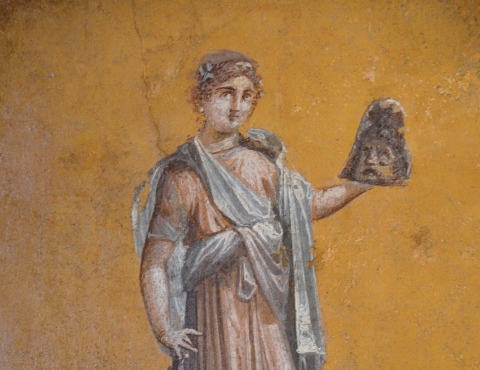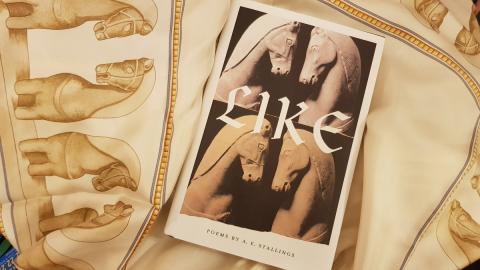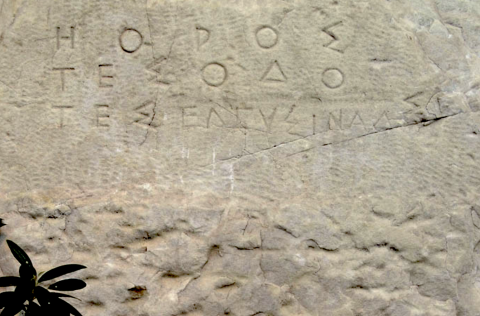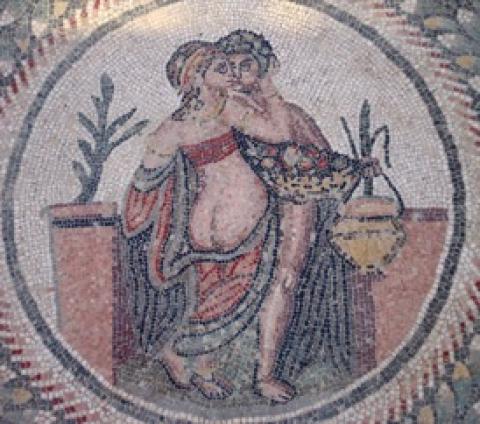SCS Blog Author Page
Posts by Adrienne Rose

|
Blog: The Art of Translation: An Interview with Jinyu Liu
In her ‘art of translation’ column, Adrienne K.H. Rose interviews Jinyu Liu, Professor of Classical Studies at Depauw University, about translating texts across cultures, Ovid, and the translation space as a “contact zone.” |

|
Blog: Can a New Journal Modify the Way We Teach and Understand Classical Translations?
What is the interplay between Classics and literary translation? What are the preparatory actions for launching a new journal that will address problems and lacunae within the field? Adrienne K.H. Rose explores the challenges of beginning a translation journal which will address the philosophies, difficulties, and necessity for diversity within the area of classical translation. Early Latin translators, including Cicero (De optimo genere oratorum iv. 13-v.14), Horace (Ars poetica II.128-44), Quintilian (Institutio Oratoria X.xi 1-11; X.v.1-5), and Jerome (Chronicle 1-2) distinguish between the act of word for word––or literal translation––and Read more … |

|
Blog: The Art of Translation: An interview with A.E. Stallings
This month in her ‘art of translation’ column, Adrienne K.H. Rose interviews A.E. Stallings while in Pylos and then in Virginia. The two discuss the word choices made by translators, the surprising relevance of Archaic poetry in the tumultuous present era, and the effects of living life in a foreign language. Q: How did you decide to study Classics? Gradually, then suddenly—I didn't start taking Latin until college [at the University of Georgia], where I was initially an English and Music major, but I started with Latin 1, and just kept taking more and more Latin and Classics courses until finally the department (in particular Rick LaFleur, then Dept. head), gently suggested I change majors. Q: Could you say a bit about the significance of learning Latin and Greek and translating Classics and its impact on you? It changed my understanding of Read more … |

|
Blog: Finding the Boundaries: Leading Classical Study Abroad Tours And Teaching From Inscriptions
When you do study abroad trips with college or high school students, teaching happens on-site and draws upon the artifacts that surround you. We found this out firsthand while leading the first ever 3-week study abroad summer session in Greece from 21 May to 12 June for the University of Tennessee-Knoxville’s Classics department this summer. I co-led the trip with classicist Thomas Rose. We both specialize in different areas, which really gave breadth to the teaching. Whereas Prof. Rose is an expert in Greco-Roman historiography and epigraphy, I specialize in poetry and translation while teaching at the University of Iowa. The itinerary was loosely inspired by the trips we both took to central and northern Greece as regular and student associate members of the American School for Classical Studies at Athens (ASCSA) in Read more … |

|
Blog: How to Choose the “Right” Translation to Teach
By Adrienne K.H. Rose In her monthly column, Prof. Adrienne K.H. Rose explores issues surrounding translation within Classics. In her first edition, she addresses the challenges of picking the “right” Catullus translation. What does “right” even mean when choosing a translation for class? Choosing the “right” translation of any Classical author for the classroom is a challenge for most teachers. What is “right” can often be dependent upon factors such as availability and pricing, particularly for students with a textbook budget. For a popular, much-translated poet like Catullus there is a wealth of English-language translations to choose from. Catullus is antiquity’s most modern poet. His work is raunchy, moody, turbulently charged political and social commentary – my advanced Latin students called him “emo”—his carmina akin to unfiltered Facebook status updates perhaps better left unposted. At the same time they’re fastidious metrically, Read more … |
